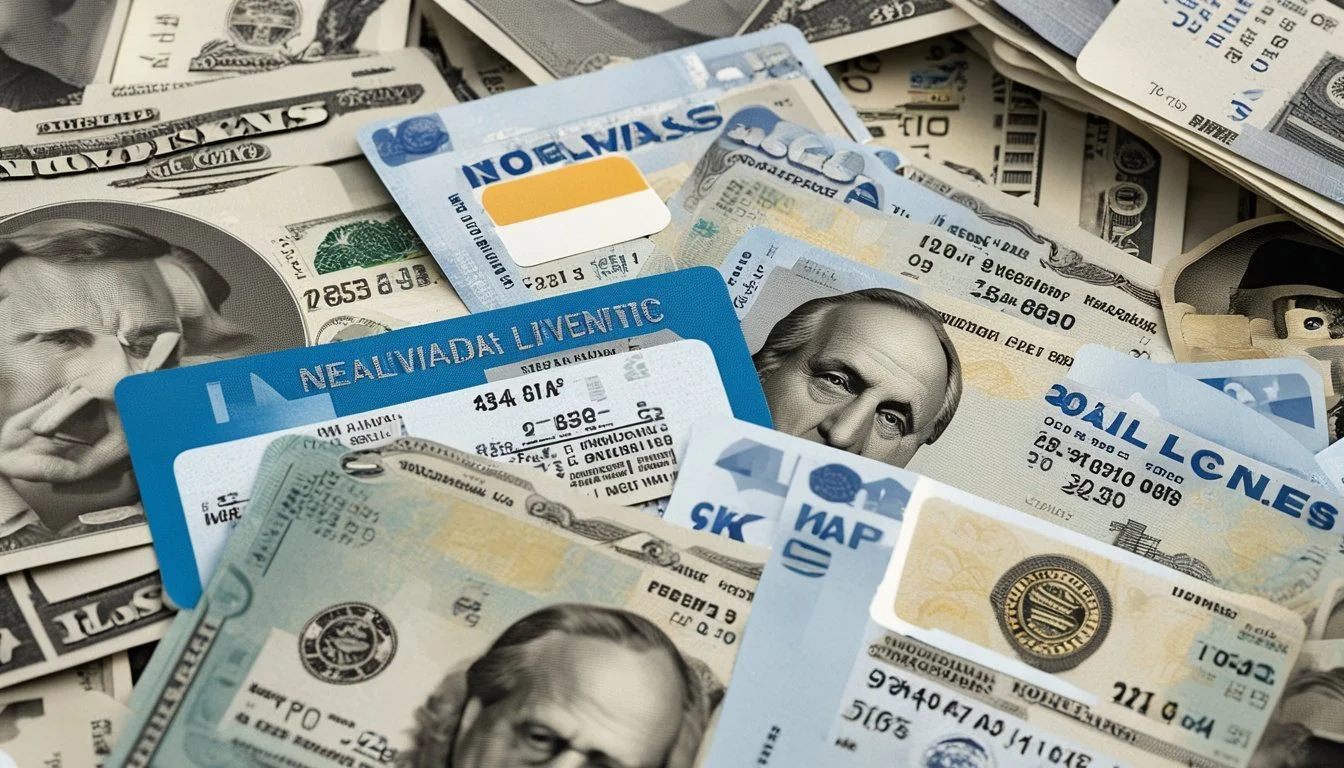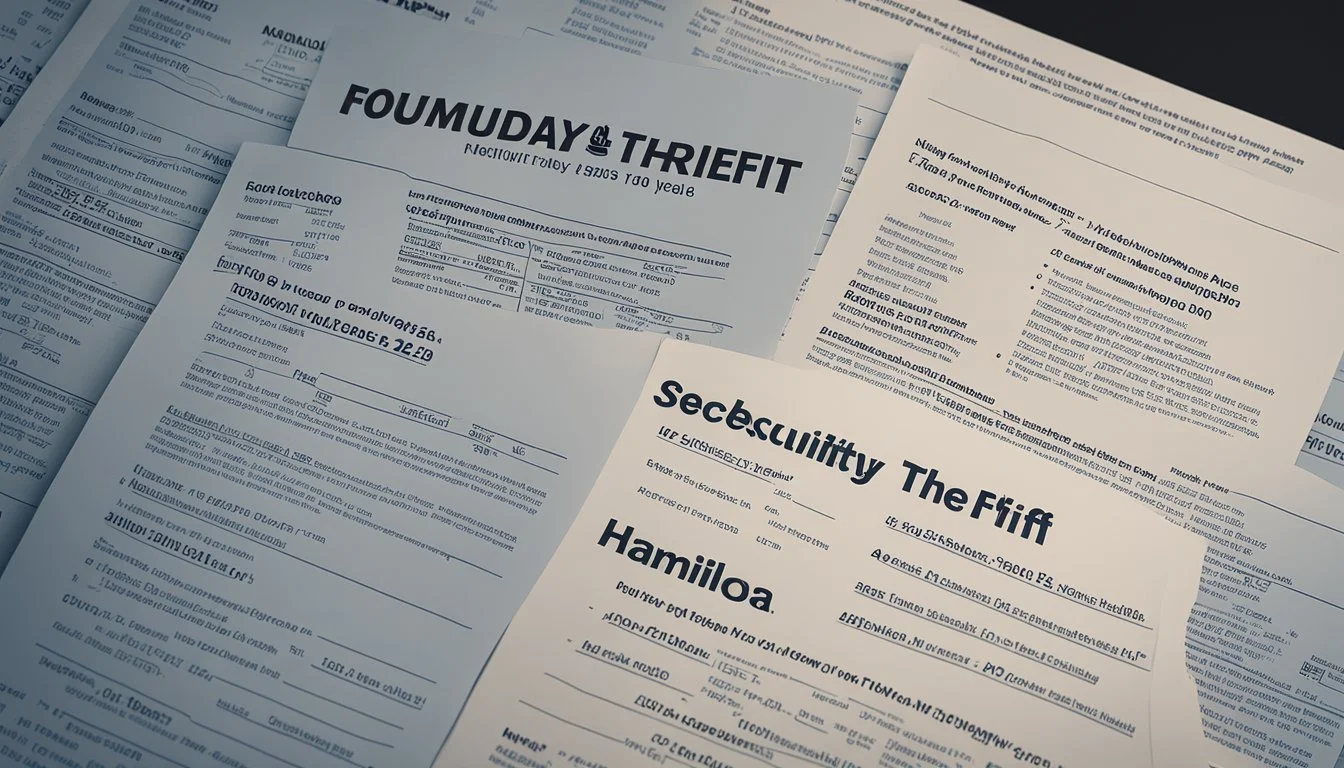6 True Crime Documentaries on Identity Theft in Nevada
Riveting Cases and Investigations
Identity theft has become a significant issue in today's digital world, affecting countless individuals and raising concerns over personal security. Nevada, with its unique set of challenges and situations, has seen a notable share of these crimes, prompting the creation of several insightful documentaries. These documentaries aim to shed light on the sophisticated tactics used by criminals and provide viewers with crucial knowledge to safeguard their identities.
Through the lens of true crime storytelling, these films not only captivate audiences with real-life accounts but also educate them on the broader implications of identity theft. By focusing on cases in Nevada, the documentaries offer a closer look at how these crimes unfold and impact the victims involved.
1) The Real Vegas Heist
In 1993, Heather Tallchief executed a $3.1 million heist in Las Vegas. Partnered with her then-boyfriend, Roberto Solis, she managed to rob an armored vehicle. This crime marked one of the largest heists in the city’s history.
Tallchief was a 21-year-old ex-nursing assistant at the time. She and Solis had planned the robbery meticulously, making the theft both bold and successful.
For years, Tallchief evaded capture while living under a false identity. Her story was later chronicled in the Netflix documentary series "Heist" (2021), which provided a detailed account of the crime and its aftermath.
Roberto Solis, a known criminal, played a significant role in influencing Tallchief. His background added a layer of complexity to the case. Their partnership and the heist's eventual unraveling captivated audiences.
Despite the initial success, Tallchief eventually surrendered in 2005. Her story remains a cautionary tale about the allure and dangers of high-stakes crime. For more on this story, check out the series on IMDb.
2) Scammed in Sin City
Sin City, known for its glitz and glamour, is not immune to the dark underworld of identity theft and fraud. This documentary sheds light on the shadowy figures who exploit the excitement of Las Vegas for their gain.
"American Greed: Scams, Scoundrels and Scandals" (2007) digs deep into cases involving corporate and white-collar crimes. This series presents detailed accounts of financial scandals with interviews from investigators and victims. Learn more about these eye-opening cases on IMDb.
"Lords of Scam" (2021) explores modern-day fraudsters and the intricate web of scams they weave. Centered around high-profile con artists, it uncovers sophisticated schemes and their impact on victims and the community. For further details, visit IMDb.
"The Inventor: Out for Blood in Silicon Valley" (2019), although not centered in Nevada, highlights how massive schemes can unfold anywhere. It profiles Theranos founder Elizabeth Holmes, illustrating the extent to which a scam can evolve. Discover more on IMDb.
These documentaries provide a compelling look at the risks associated with identity theft and fraud, especially in places like Las Vegas where temptation and deception often intersect.
3) Stolen Identity: Nevada's Dark Side
Nevada's allure isn't just its glittering casinos and stunning landscapes; it also harbors a shadowy side of identity theft that has devastated many lives.
Medical Gangsters: Identity Thieves (2019) exposes the intersection of organized crime and healthcare in Nevada. This documentary reveals how criminals exploit personal medical information, infiltrating healthcare systems to catalyze their schemes. More information can be found here.
William Woods was victim of identity theft, but he was the one jailed (2019) recounts the true story of William Woods, who was wrongly imprisoned after his identity was stolen in Nevada. The perpetrator's actions left Woods entangled in legal battles and personal anguish. Discover more about this case here.
Identity Theft in Las Vegas, Nevada - Laws & Penalties (2020) highlights legal responses to identity theft in Nevada. Through interviews with law enforcement and victims, this documentary outlines the penalties for offenses like possession of fake IDs to engage in activities like drinking or gambling. Learn more here.
The depth of identity theft in Nevada is explored through these gripping documentaries, shedding light on the state's darker narratives.
4) Swipe Right for Fraud
"Swipe Right for Fraud" delves into identity theft cases related to online dating in Nevada. One prominent documentary is "Catfish" (2010). This film features Nev Schulman, whose personal experience with a deceptive romantic relationship online exposes the darker side of web-based dating. IMDB
Another notable entry is "Love Fraud" (2020). It chronicles the manipulative tactics of Richard Scott Smith, who used online dating platforms to assume false identities, marry multiple women, and drain their finances. This four-part series uncovers the emotional and financial devastation wrought by Smith's schemes. Wikipedia
The documentary "Cyber Hell: Exposing an Internet Horror" (2022) explores a massive cyber trafficking ring that targeted unsuspecting individuals through dating apps and social media. This film reveals how perpetrators manipulated and exploited victims, connecting personal tragedies to broader cybercrime issues. IMDB
These documentaries highlight the risks and repercussions of online dating scams, showing a clear connection to identity theft in Nevada.
5) Casino Con Artists
Las Vegas, often seen as a playground for adults, has a darker edge with its history of cunning con artists targeting casinos.
One standout documentary is "Inside the Mind of a Con Artist" (2023). This film digs into the psychology of those who deceive casino operators, featuring interviews with specialists and former con artists. IMDb
"Casino Scammers" (2021) examines several cases where sophisticated criminals exploit casino vulnerabilities. The documentary showcases real-life heists and the intense investigations following them. IMDb
"The Real Hustle: Casino Scams" (2019) features dramatic reenactments of famous casino cons. Interview segments with law enforcement officials and game security experts reveal how these scams are orchestrated and prevented. IMDb
"Cheating Las Vegas" (2016) dives into notable scams that have hit the city. The film is both educational and entertaining, giving viewers insights into high-profile casino fraud cases. IMDb
"Casino Crooks: The True Story" (2018) showcases daring heists and the criminals behind them. This documentary covers celebrated cases and the extreme lengths to which crooks go to cheat the system. IMDb
6) Nevada's Identity Puzzle
Nevada has become a focal point for identity theft cases, making it an intriguing subject for true crime documentaries. The state's high rate of identity theft incidents has drawn significant attention from filmmakers and audiences alike.
One notable documentary is "Identity Theft: The Michelle Brown Story" (2004). This film showcases the dramatic impact of identity theft on Michelle Brown's life after a stranger steals her identity. The story emphasizes the emotional and financial turmoil victims endure. IMDB
Nevada's efforts to combat identity theft are also insightful. The Nevada Identity Theft Program plays a crucial role in assisting victims by offering tools to restore credit and avoid improper legal charges. This initiative is pivotal in exploring how victims can recover and reclaim their lives.
Statistics highlight the gravity of the situation. In 2021, Nevada reported 17,985 identity theft cases, equating to 584 cases per 100,000 people. These figures shed light on the state's vulnerability to such crimes and underscore the importance of preventative measures and public awareness.
The legal landscape in Nevada is strict concerning identity theft. Possession or distribution of fake identification for illicit activities can result in misdemeanors or gross misdemeanors, carrying significant penalties. These laws aim to deter identity theft and provide justice for victims.
Nevada's identity puzzle remains a compelling subject for documentaries, capturing both the personal narratives of victims and the broader societal implications.
Overview of Identity Theft
Identity theft involves the unauthorized use of another person's personal information, often used for financial gain. Understanding the various types and common methods can equip individuals with the knowledge needed to protect themselves.
Types of Identity Theft
Financial Identity Theft: This is the most common type where fraudsters use stolen information to access the victim's bank accounts, credit cards, and loans.
Medical Identity Theft: In this type, a thief uses someone's identity to receive medical care, prescription drugs, or submit false insurance claims.
Criminal Identity Theft: Here, the perpetrator provides the victim's information to law enforcement, often resulting in wrongful arrests or legal complications for the victim.
Employment Identity Theft: Fraudsters use someone’s identity to gain employment, risking the victim's credit score and legal standing due to unpaid taxes or criminal activities at the job site.
Common Methods Used
Phishing: Scammers use emails, texts, or fake websites posing as trusted entities to trick individuals into providing personal information like passwords or Social Security numbers.
Skimming: Devices are installed on ATMs or point-of-sale terminals to capture card information during transactions, which is later used to create counterfeit cards.
Data Breaches: Cybercriminals exploit security weaknesses in companies' systems to steal vast amounts of data, including personal details of customers and employees.
Dumpster Diving: Thieves rummage through discarded personal documents such as bank statements and bills to gather information.
Being aware of these methods can assist in taking proactive measures to guard against identity theft.
Impact of Identity Theft in Nevada
Identity theft in Nevada has significant consequences, affecting both the economy and the legal environment. It has led to substantial financial losses and legal complexities for victims and authorities alike.
Economic Consequences
Identity theft in Nevada has led to considerable financial losses. In 2021 alone, fraud and scams, including identity theft, accounted for $69.6 million in losses. The average loss per fraud case was about $616, underlining the widespread financial impact on individuals.
Additionally, the state's resources are taxed by the need to investigate and rectify these fraudulent activities. This creates an economic burden not just for the victims but also for public institutions dealing with these crimes.
Legal Implications
Legal challenges arise both for those falsely accused and the actual perpetrators. Nevada has specific laws to address identity theft, such as the state-run Nevada Identity Theft Program and penalties under NRS 205.460. This program helps victims restore their credit and avoid improper criminal charges.
Penalties for identity theft can range from misdemeanors to gross misdemeanors, with sentences varying from up to six months in jail and/or $1,000 in fines, to up to 364 days in jail and/or higher fines. These stringent measures reflect the state's commitment to combatting identity theft effectively.
Preventive Measures and Safety Tips
Understanding how to protect personal information and recognize scams is essential for safeguarding against identity theft.
Protecting Personal Information
Individuals should prioritize secure storage for their personal documents. Shredding sensitive documents like bank statements and medical records before disposal prevents unauthorized access. Strong, unique passwords for online accounts enhance security.
Encryption software can protect digital information, making it unreadable to unauthorized users. Using a Virtual Private Network (VPN), especially when connected to public Wi-Fi, is crucial. This masks browsing activity and secures data transmission.
Multi-factor authentication (MFA) adds an extra layer of protection by requiring multiple verification steps beyond passwords. Regularly reviewing credit reports for accuracy ensures that any unauthorized activity is promptly identified and addressed.
Recognizing Scams
Awareness of common scam tactics helps prevent identity theft. Phishing emails often mimic legitimate companies to steal personal information. Carefully scrutinizing email senders and avoiding clicking on suspicious links is vital.
Scammers may also use phone calls, pretending to be from financial institutions or government agencies. Verifying the caller's authenticity through official contact methods before divulging personal details is a good practice.
Monitoring unusual financial activity on bank or credit card statements can be an early indicator of identity theft. Promptly addressing unknown transactions is crucial. Familiarity with scam variations, including advanced fee fraud and prize-winning notifications, helps individuals avoid falling prey to such schemes.
Consistent vigilance and employing these preventive measures can significantly reduce the risk of identity theft.








